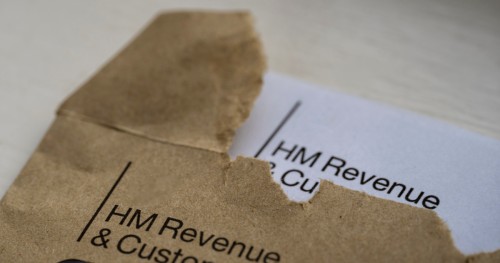Key documents freelancers need to secure a self-employed mortgage

You’ve got your head around 'self-employed mortgages,’ done some credit score prep as a freelancer and even turned in your splurging -- but now the lender is asking for documents! It’s these tangible requirements of getting a home loan as a sole trader we’ll turn to now, with help and guidance from Tide.
Key documents you need to apply for a mortgage as a freelancer
With everything in order as far as your business and personal finances are concerned, you’re in a good position to put forward a solid mortgage application.
The method of application will differ depending on your business structure, but lenders will want to see certain documents regardless of your legal structure.
1. Identification
A photo ID such as a passport or driving licence that shows your current home address will be necessary. So make sure you get these updated if you’ve recently moved, or if they’ve expired!
2. Proof of address
A paper utility bill, council tax bill or bank or credit card statement that matches the address on your ID will be required. Get that filing cabinet dusted off!
3. SA302
The SA302 form from HMRC shows your tax breakdown.
This form is used to evidence and substantiate up to four years of earnings, though most lenders will only ask for two or three years of ‘SA302s.’
You may be able to provide SA302s that you’ve printed or, sometimes, the lender may insist upon an official covering letter from HMRC.
SA302s can be printed from your online HMRC account. But how?
Log in to HMRC and go to ‘Self-Assessment.’
Go to ‘More Self-Assessment Details.’
Click on ‘Get your SA302 tax calculation’ and click ‘Print.’
If you need a covering letter, contact HMRC directly by phone or use their on-site ‘live chat.’
4. Proof of income
This will vary depending on the lender but will include one of the following:
A combination of profit and loss reports, balance sheets and bank statements
An Accountant’s Certificate signed for by a certified account.
An Accountant’s Certificate is a form that serves as proof for company accounts, such as salary income, dividend income and company profits. These tend to be used where an SA302 and tax information is not fully representative of income, meaning you need another option to show the lender your true income. For example, if profit has been retained in your company rather than taken as dividends, an Accountant’s Certificate will certify this.
5. Proof of deposit
A bank statement will be required as this will show how much deposit you have saved
6. Proof of outgoings
Lenders will want to understand your freelancer expenses so they can complete the affordability assessment. You will need to include all regular monthly outgoings such as bills and loan payments, as well as subscriptions, childcare costs, insurance and pension contributions.
7. Bank statements
Paper statements including 3-6 months’ salary statements, 3-6 months’ business banking statements and 3-6 months’ personal statements, need to be hand to show/send to your lender.
8. Life insurance policy
Sounds daunting, but you will need a life insurance policy in place simply to cover the mortgage should the worst happen.
The above eight are the tangible, paper requirements unifying all workers of independent status who go forward for a home loan. Let’s now look at requirements particular to your legal structure.
Applying for a mortgage as a sole trader
If you’re a sole trader, all of the business profits belong to you. This makes it easier to prove your earnings. Lenders will look at your income for the past two or three years to calculate your average income.
Before applying for a mortgage, ensure that as a sole trader you have:
Two years’ worth of full, finalised accounts; and
Two years of SA302s (ending within the last 18 months).
Applying for a mortgage as a limited company director
As a director of a limited company, lenders will focus on the income from your basic salary as well as dividend payments, so ensure you:
Records for income and dividends going back 2-3 years.
Some lenders may also consider retained profits as part of your income. Including retained profits in their borrowing assessment allows you to boost your recorded income without having to actually pay yourself in dividends. Check with the lender first that this approach is available though, as it is not always on offer. We’ll talk about ‘freelance-friendly’ lenders later (in part four).
Applying for a mortgage as a partnership
In a partnership, lenders only look at your share of the profits.
You’ll need to have:
Proof of income for 2-3 years in the form of partnership accounts; and
Personal SA302s, ending within the past 18 months.
Lenders will calculate an average profit as the basis for their lending decision.
Applying for a mortgage as a CIS contractor
If you work in construction or are a member of the Construction Industry Scheme (CIS), where tax and national insurance is deducted from your pay in advance, lenders will process your application in the same way as a sole trader (outlined above). But you’ll also need payslips from your employer or client, albeit just dating back six months.
Coming up next -- in the final instalment
So with documents, papers and other forms you’ll be asked by a lender to provide for your self-employed home loan application, you’re now all set. Right?! Sort of. Before you can sit back and let the process take its course, we’ll review the key steps to take to boost your chances of being approved by the lender, some we’ve covered so far – and some new, vital ones which can make all the difference.



Comment
Log in or create your account to react to the article.